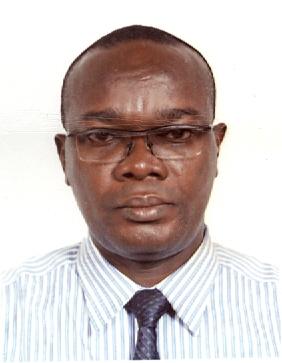As efforts are on to perfect the African Continental Free Trade Area (AfCFTA) agreement, the Chartered Institute of Logistics and Transport (CILT) Nigeria has said that it will take a while before Nigeria can actively play its role in the African Continental Free Trade Area agreement.
Paul Ndibe, the National Executive Director, CILT Nigeria who made this assertion in an interview with our correspondent in Lagos recently observed that the reasons for the assertion were obvious as government has not designated ports for export of products under the label of the African Continental Free Trade Area.
Ndibe who wondered why the Nigerian government won’t designate smaller river ports for takeoff of products or commodities to other African countries however acknowledged that Nigeria can’t compete with those importing containers in AP Moller and others.
“So, why don’t they because they are small individual business owners, they are still testing the market, they have not developed the market. So, it will not be huge exportation, therefore, let start from small river port and government should make the facility available for them.
“I was thinking that because everybody was thinking about cabotage, the advent of the African Continental Free Trade zone would have enabled us to do something on our local shipping so that we can make use of our waterways. They can be bringing, since it is commodities, we are not selling cars, we are not selling fridges now, so, why won’t they, at least support growth of the local maritime development so that they can begin to, along the riverine connect these commodities to the identified river ports for major export?” he queried.
He went further to point out that government had not also established centres neither has it established cold rooms noting that it was a surprise that Nigeria was the highest producer of yam in the world but Ghana was the highest exporter of yam.
“So, how come that they are the highest exporter and we are the highest producer? It is not that we consume all that we produce but we have not managed the logistics aspects of managing the yam within the gestation period open to us.
“So, for those river ports, do we have warehouses that are temperature controlled to accommodate tomatoes? There are certain times of the year that if you go to the North, tomatoes, water melon and all that will be wasting away. These things can be exported to other countries but in what condition? If government cannot establish, have they opened up bids for people, to license them to establish those centres knowing that they will influence growth in our export market at least within the Africa region?
“The products that will go out, where are there? Where are the centres? Have they even determined the procedure for, up till now, the Nigeria Customs Service has not received the list of commodities? Is it not when the commodities are out that they will give to customs? It might take up to six months. It is when the commodities are out that they begin to apply and begin to classify and de-classify”, he added.
On product packaging, he said, “If Nigeria has come up with a standard for packaging tomatoes for example, not in lafia basket but in a more suitable basket that can resist the strength of loading maybe five or ten baskets, if you go to the frozen food market, you see frozen chicken of any classification of 10 kilogram, it is standardized. Even fish, it is standardized, exactly the point I am making. If we don’t standardize the packaging, then we have not started.
“At a point, tomatoes was an issue in Nigeria, tomatoes were wasting until there was an investment in that sector. If you go the market, you find not less than eight brands of tomato pastes, all made in Nigeria. Is it not a breakthrough? Even in sachet, so, why don’t we look at in other sectors? It is a question of encouraging investment in that and give them tax holidays or initial investment capital.”
Photo: National Executive Director, CILT Nigeria, Mr. Paul Ndibe.
Send your news, press releases/articles to augustinenwadinamuo@yahoo.com. Also, follow us on Twitter @ptreporters and on Facebook on facebook.com/primetimereporters or call the editor on 07030661526, 08053908817.

